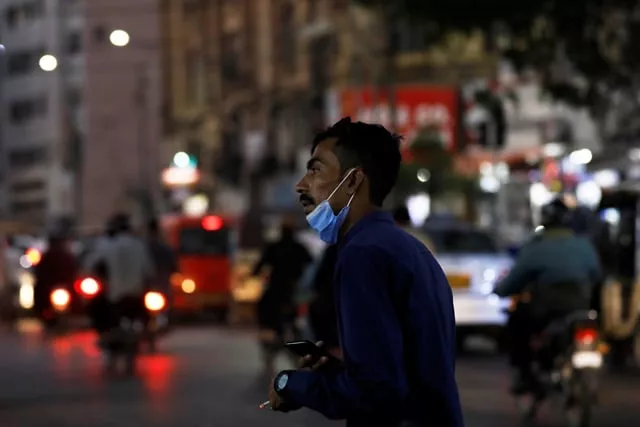How pandemics affect development outcomes?
Economic challenges caused by pandemic adversely impact education, healthcare
NORTHAMPTON:The current Covid-19 crisis has posed huge economic, societal and public health challenges worldwide.
While discussions on the disastrous impact of the pandemic have primarily revolved around economic challenges that affect global population, the crisis also has deep short-term and long-term consequences for health and development outcomes.
History has taught us many cases where the pandemic has resulted in huge inequality not just in terms of income but also social inequality.
Historical accounts of epidemics show that poverty, inequality and social determinants of health create conditions for existing health inequalities to exacerbate.
Below are discussed some of the short-term and potentially long-term impacts of the pandemic on social (education and health) outcomes with special reference to developing nations, which have been particularly hard hit by the pandemic.
Pandemics and social inequalities
Economic challenges brought about by the pandemic adversely impact education and health outcomes.
As countries race to ameliorate conditions on the economic front, the diversion of critical resources affects other key areas of economic development. Such is the case of health.
Both the World Bank and United Nations have warned that maternal and child mortality is predicted to increase in the short run not only from Covid-19-related illness but due to critical resources diverted away from primary care to respond to the pandemic.
One other aspect of child mortality often neglected in population statistics is that of stillbirths.
According to a new UN report “A Neglected Burden: The Global Tragedy of Stillbirths”, the number of stillbirths was on a downward trend before the outbreak of Covid-19, but still stood at an enormous 1.9 million babies stillborn in 2019.
About 77% of all stillbirths occur in Sub-Saharan Africa and South Asia. These comprise mainly Guinea-Bissau, Pakistan, Central African Republic, South Sudan and Afghanistan.
Experts from the World Bank recently warned that the impact of the pandemic could be detrimental and long-lasting for developing countries where a large proportion of the population comprised schoolchildren and students.
In the case of Pakistan, 35.4% of the country’s population is under 15 years old. In the short run, there may also be negative consequences of the pandemic for education. This may be exhibited in the form of falling enrolment rates at the primary and second levels.
Even before the pandemic, Pakistan faced poor net enrolment ratios for both sexes, but especially for females.
World Bank data from 2018 shows that before the onset of the pandemic, the adjusted net enrolment ratio for primary education in Pakistan was 68.2% for both sexes, whereas it was 62.1% for females.
Only a few months of school closures worldwide have resulted in learning inequality, particularly in Central Asian countries, which already suffered from low learning levels before the pandemic.
Learning inequality, defined as a gap between students from various income levels, widened due to differential access to distance learning for teachers and students, teaching support, access to teaching and learning material at home, and household contribution to homeschooling.
During the pandemic, many Pakistani media reports emerged about students struggling to keep up with their learning and education due to living in disadvantaged areas with limited internet connectivity.
Research on prior pandemics has shown that there are both immediate and long-term consequences for many children, with risks particularly faced during early childhood when the brain architecture was still rapidly developing and highly sensitive to environmental adversity.
World leaders need to act collectively to deliver on both these crucial fronts so that the most vulnerable amongst us are protected from severe and possibly long-lasting consequences of the current crisis.
THE WRITER IS A DOCTORAL CANDIDATE AT THE BARTLETT, UCL
Published in The Express Tribune, October 12th, 2020.
Like Business on Facebook, follow @TribuneBiz on Twitter to stay informed and join in the conversation.


COMMENTS
Comments are moderated and generally will be posted if they are on-topic and not abusive.
For more information, please see our Comments FAQ